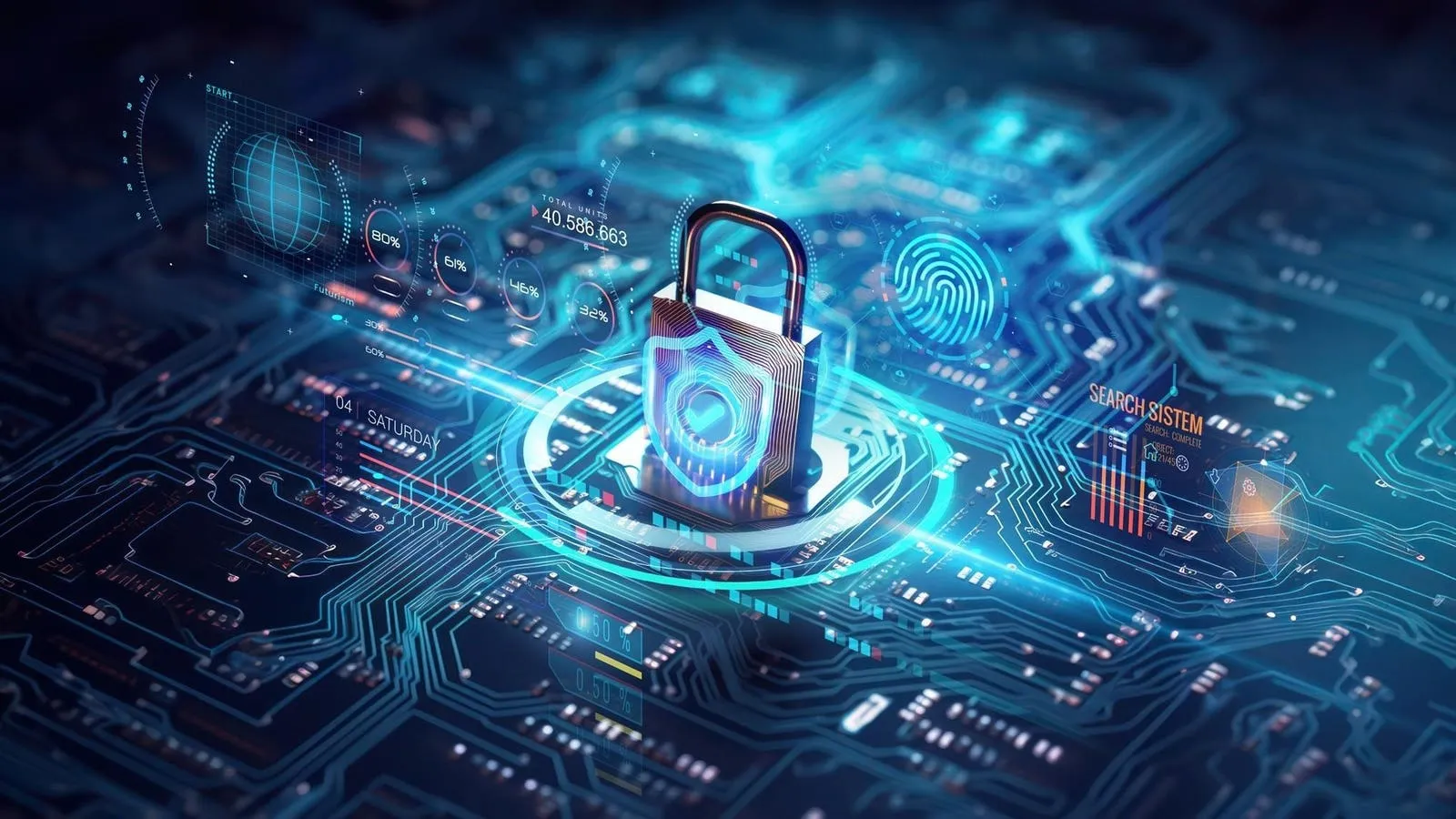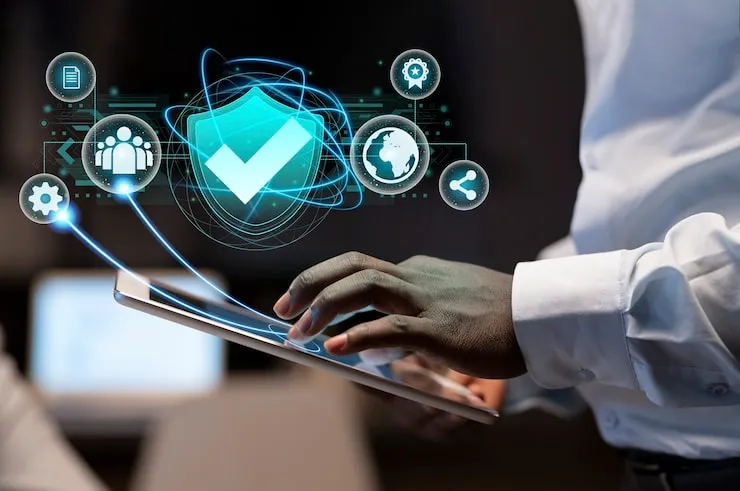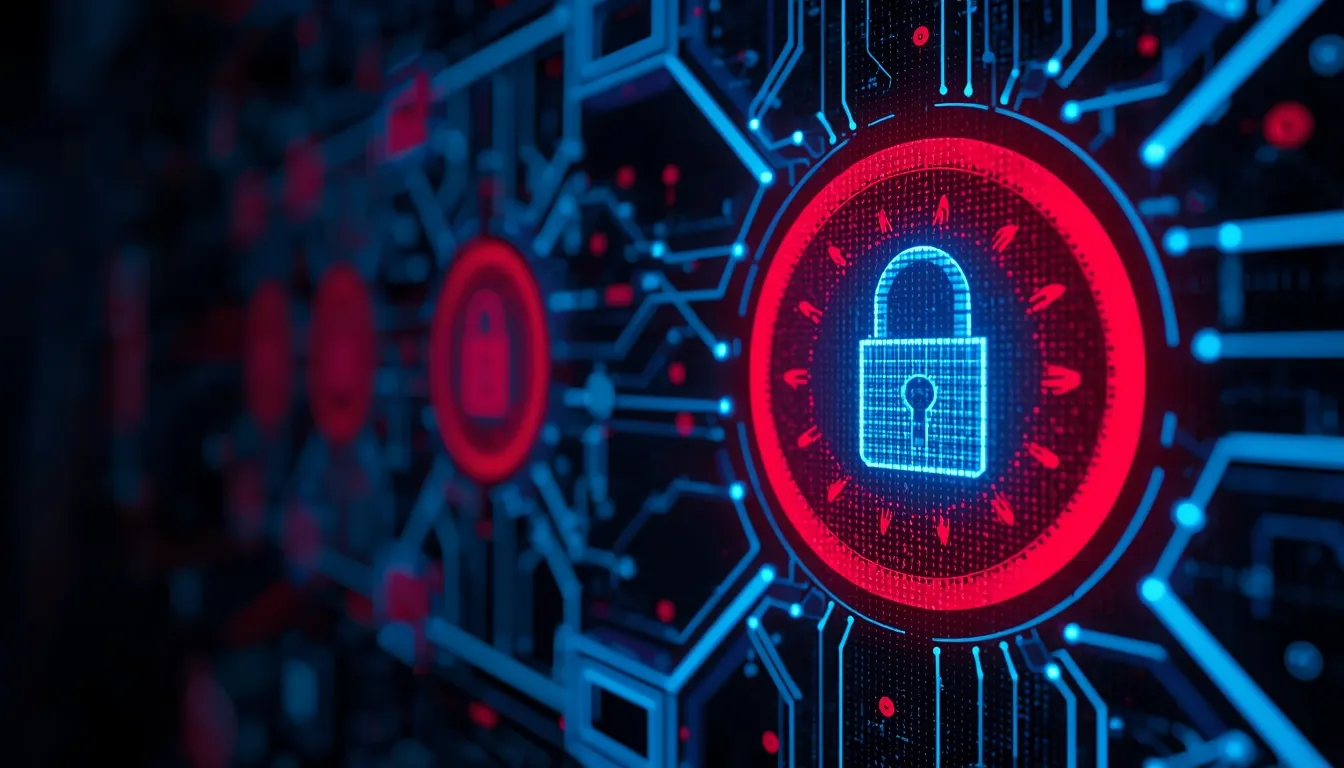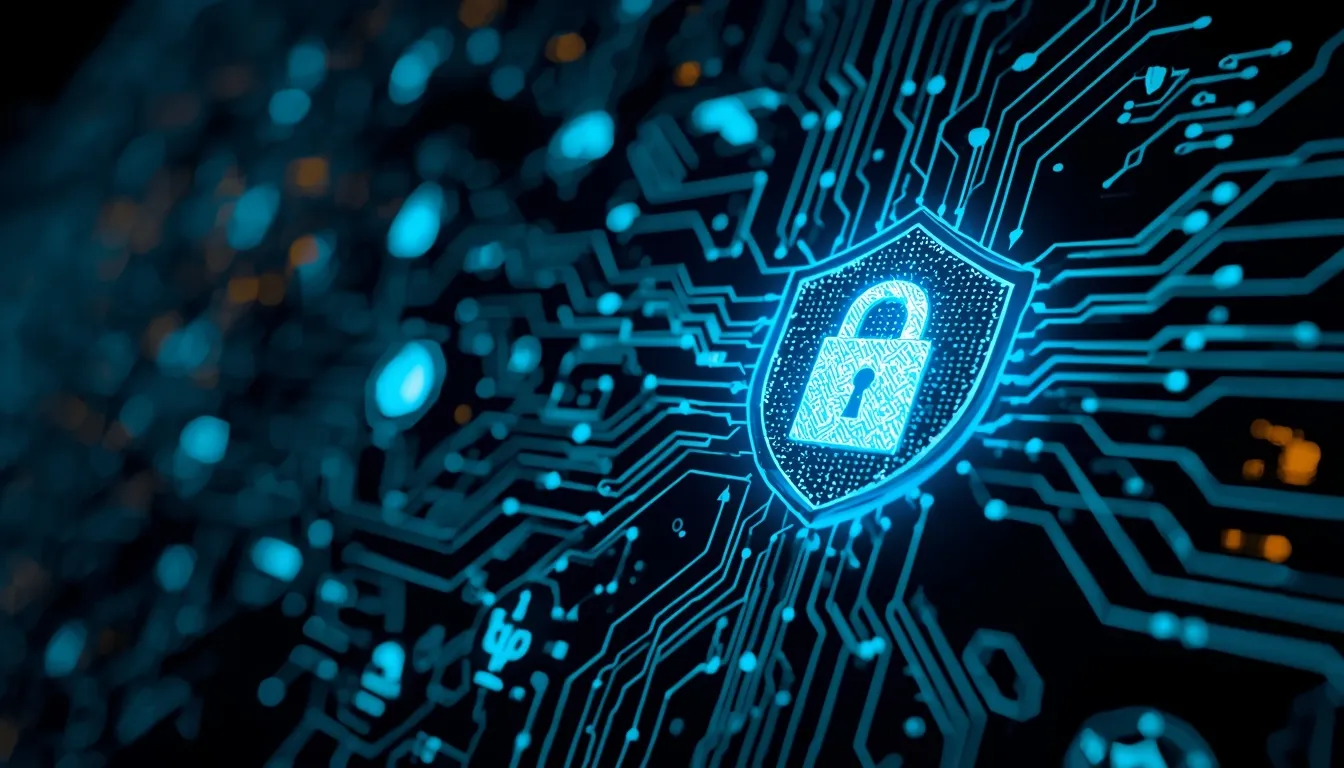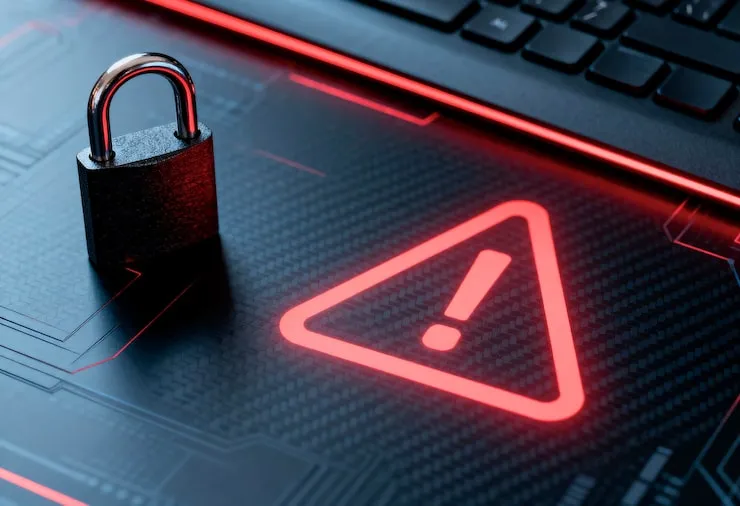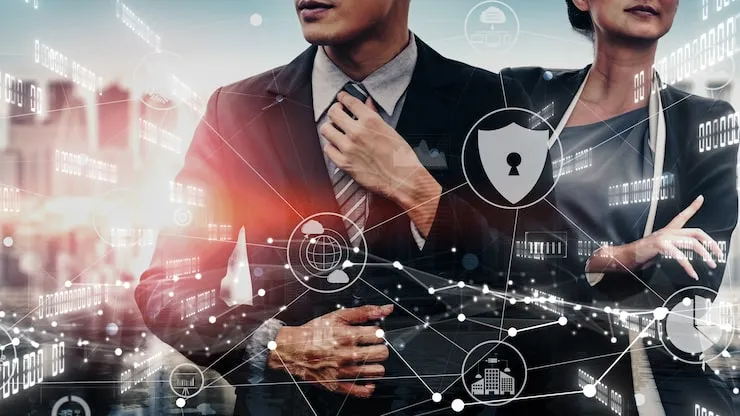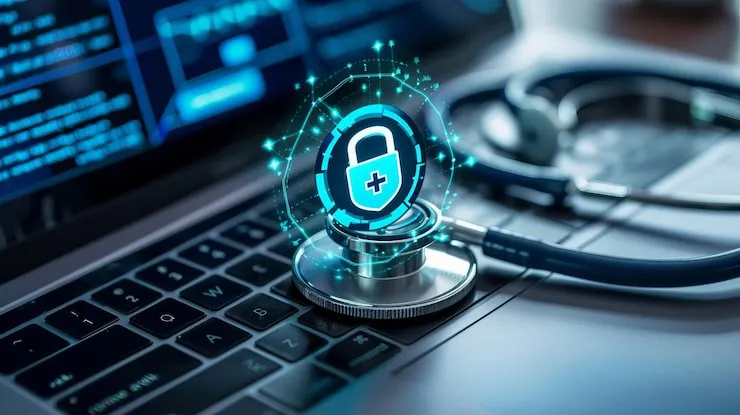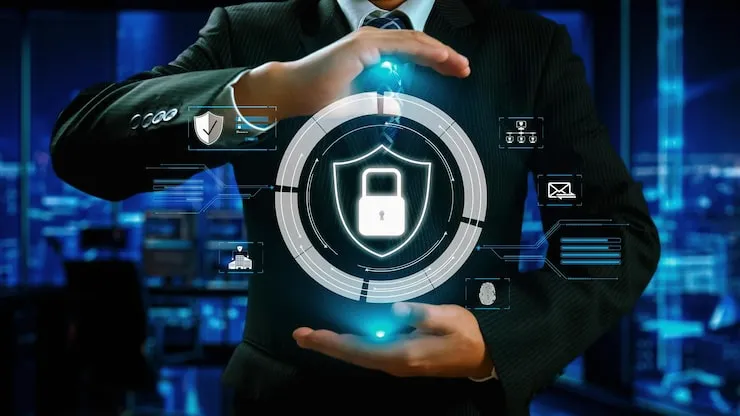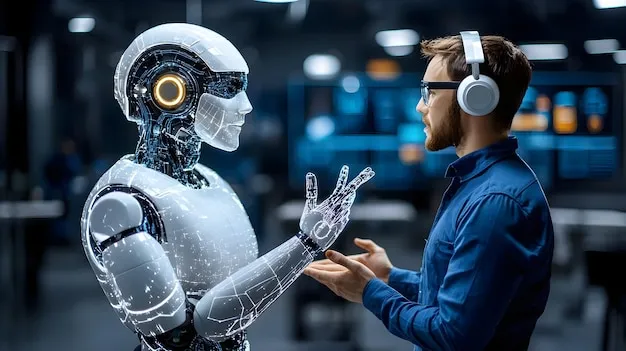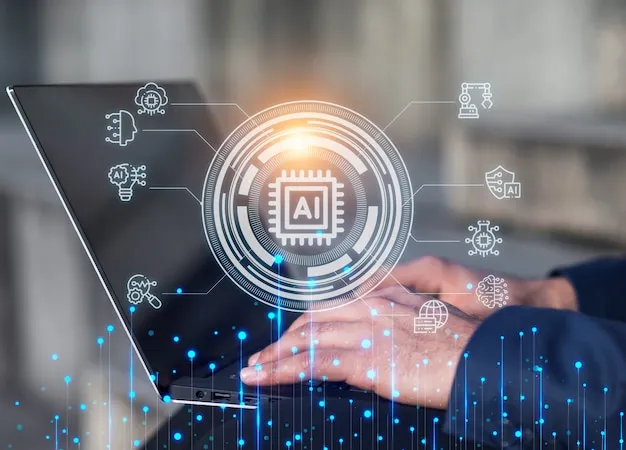Have you ever wondered how your personal information stays safe online? Or maybe you've heard about cyber attacks on the news and thought, "What does that actually mean?" Well, you're not alone! Today, I'm going to break down cybersecurity into bite-sized pieces that anyone can understand.
How Cybersecurity Works In Simple Terms
Think of cybersecurity like the locks and alarm system for your digital life. Just like you lock your front door to keep burglars out, cybersecurity tools help keep digital bad guys away from your personal stuff online. When I first started learning about computers, I was confused by all the technical terms. But over time, I realized that cybersecurity is really just about protecting information and keeping it private. It's like having a secret diary with a lock—you only want certain people to be able to read it!
What Cybersecurity Actually Means for You
Cybersecurity is all about protecting your digital information from people who shouldn't see it. This includes:
- Your passwords
- Bank account details
- Personal photos
- Private messages
- Medical information
Every time you go online, use email, or shop on a website, cybersecurity tools are working behind the scenes to keep your information safe.
The 5 Types of Cyber Security That Keep You Safe
Just like there are different ways to protect your home (locks, alarms, security cameras), there are different types of cybersecurity that work together to keep you safe online. Let's break them down:
1. Network Security
Network security protects the roads that your information travels on. When you send an email or visit a website, your information goes on a journey through the internet. Network security makes sure no one can grab your information during its journey. I once had a neighbor who would use public Wi-Fi to check his bank account. I explained that without network security (like using a VPN), it's like shouting his bank details in a crowded room!
2. Information Security
Information security (sometimes called InfoSec) focuses on protecting data, whether it's being stored or sent somewhere. This includes encryption, which is like putting your information in a special lockbox that only the right person can open. My friend's small business was storing customer credit card numbers in plain text files. After I explained information security basics, they switched to a secure, encrypted system—much safer!
3. Application Security
Application security makes sure the apps and programs you use are safe. This includes the games on your phone, your web browser, and even the software your school or workplace uses. When my nephew wanted to download a free game, I showed him how to check reviews and permissions first. The game wanted access to his contacts and messages—a big application security red flag!
4. Operational Security
Operational security is about the everyday habits and rules that keep information safe. This includes things like using strong passwords and being careful about what you share online. I created a simple system for my family: we use a password manager, change passwords every few months, and never share sensitive information via text message. These operational security habits have kept us safe for years.
5. End-User Education
The final type is end-user education, which means teaching people (like you and me) how to stay safe online. Even the best security systems can be bypassed if people don't know basic safety rules. I volunteer at my local library teaching seniors about online safety. Many were clicking on suspicious emails until they learned basic cybersecurity habits!
Why Is Cyber Security Important in Today's World?
The Digital World Is Part of Everything
Think about your day. How many times do you use something connected to the internet? Your phone, computer, maybe even your refrigerator or doorbell camera! As more of our lives move online, protecting our digital information becomes more important. When my smart thermostat was installed last year, I realized my heating patterns could tell someone when I'm home or away. That's when it hit me how important cybersecurity has become in everyday life.
The Bad Guys Are Getting Smarter
Cyber criminals are constantly finding new ways to trick people and break into systems. They're like burglars who study new lock designs to figure out how to pick them. I received a fake email that looked exactly like it came from my bank. The only clue was a slightly misspelled web address. Modern cyber attacks are incredibly clever!
Your Personal Information Is Valuable
Your personal details are worth money to criminals. They can use this information to:
- Make purchases with your money
- Take out loans in your name
- Trick other people by pretending to be you
- Access your accounts and services
My cousin ignored cybersecurity basics and had someone take out a loan using his name. It took him almost a year to fix his credit score afterward.
How Cyber Attacks Happen: Real Examples Made Simple
Understanding how cyber attacks work helps you spot and avoid them. Here are some common ones:
Phishing: The Digital Disguise
Phishing is when someone pretends to be a person or company you trust. They might send an email that looks like it's from your bank, asking you to "confirm your password." If you enter your information, they can steal it. Last month, I got a text message claiming to be from a delivery service. It looked real, but when I checked closely, the link led to a weird website. That's a classic phishing attempt!
Malware: The Digital Intruder
Malware is bad software that sneaks onto your device. Some types spy on what you do, while others lock up your files and demand money (called ransomware). My daughter's school had their computers locked by ransomware. They couldn't access grades or lesson plans until cybersecurity experts helped them recover everything.
Data Breaches: The Digital Break-In
A data breach happens when criminals break into a company's systems and steal customer information. This could include names, addresses, credit card details, or passwords. When my favorite online store had a data breach, they emailed me right away to change my password. Good companies take cybersecurity seriously and tell you when problems happen.
Advantages of Cyber Security for Everyone
Good cybersecurity brings many benefits to our digital lives:
Peace of Mind
When you have good cybersecurity practices, you can browse, shop, and connect online without constant worry. It's like having a good lock on your door—you can sleep better at night. I used to worry every time I shopped online until I started using secure payment methods and checking for website security indicators. Now I can enjoy online shopping without stress.
Protection for Your Money
Financial security is a huge benefit of good cybersecurity. It helps prevent fraudulent charges and keeps your bank accounts safe. Setting up alerts on my bank accounts was a game-changer. When someone tried to use my credit card number in another country, I got a text immediately and could block it.
Safeguarding Your Identity
Identity theft can cause huge problems in your life. Good cybersecurity practices help prevent strangers from pretending to be you online. My brother had someone create fake social media accounts using his photos. Now he regularly searches for his name online and uses privacy settings on all platforms.
Keeping Your Private Information Private
Some information should stay private. Good cybersecurity helps maintain your digital privacy and control who sees what. I'm careful about which apps can access my phone's location. There's no reason my weather app needs to know where I am every minute of the day!
Simple Cybersecurity Tools Anyone Can Use
You don't need to be a computer expert to use these basic cybersecurity tools:
Antivirus Software: Your Digital Shield
Antivirus software is like a security guard for your device. It scans for threats and blocks them before they can cause problems. I make sure every computer in my house has updated antivirus protection. It's caught several suspicious files before they could do any damage.
Password Managers: Your Digital Key Ring
Password managers remember all your passwords so you can use strong, unique ones for each account without forgetting them. Using a password manager changed my online life! I went from using the same simple password everywhere to having complex, unique passwords for every account.
Two-Factor Authentication: Your Double Lock
Two-factor authentication (or 2FA) adds an extra step to logging in. After entering your password, you might receive a text code or use an app to confirm it's really you. I turned on 2FA for my email account after a friend's account was hacked. Now, even if someone guessed my password, they still couldn't get in without my phone.
VPN: Your Private Tunnel
A Virtual Private Network (VPN) creates a secure connection between your device and the internet. It's especially important when using public Wi-Fi. I always turn on my VPN before using airport or coffee shop Wi-Fi. It's like having a private, protected path through the crowded internet highway.
Cybersecurity Myths Busted
Let's clear up some common misunderstandings:
Myth: "I'm Not Important Enough to Be Targeted"
Reality: Most cyber attacks aren't targeted at specific people. Criminals cast wide nets, looking for anyone with vulnerable devices or habits. I thought this too until my simple email account was hacked. Turns out, attackers don't care who you are—they just want access to any account they can get.
Myth: "Cybersecurity Is Only for Tech Experts"
Reality: Basic cybersecurity is something everyone can and should learn. It's like learning basic health habits—you don't need to be a doctor to wash your hands! My 82-year-old grandmother learned cybersecurity basics in an afternoon. If she can do it, anyone can!
Myth: "My Devices Are New, So They're Secure"
Reality: Even brand-new devices need security updates and proper settings to stay safe. I bought a new laptop last year and immediately updated the operating system. New doesn't always mean secure!
How Cybersecurity Works In Simple Terms: Real-Life Examples
Sometimes, examples help us understand complex topics better:
Example 1: The Digital Front Door
Your password is like the front door to your digital house. A weak password (like "password123") is like having a flimsy door that anyone can break down. A strong password is like having a solid door with a good lock. I helped my parents create strong passwords using random words combined with numbers and symbols. "BlueDogSwim42!" is much stronger than "password" or their anniversary date.
Example 2: The Digital Neighborhood Watch
When companies share information about cyber attacks they've seen, it's like a neighborhood watch program. Everyone benefits from knowing what suspicious activities to look out for. Our school district started sending monthly cybersecurity tips to parents after several families experienced scam attempts. Sharing information helps everyone stay safer.
Example 3: The Digital Immune System
Software updates are like vaccines for your devices. They patch vulnerabilities before they can be exploited by attackers. I set all my devices to update automatically overnight. This simple habit has prevented countless potential security problems.
How to Create Your Personal Cybersecurity Plan
You don't need fancy equipment or technical knowledge to improve your cybersecurity. Here's a simple plan anyone can follow:
Step 1: Secure Your Accounts
- Use strong, unique passwords for important accounts
- Enable two-factor authentication where available
- Be careful what you share on social media
After creating my cybersecurity plan, I spent one weekend updating all my important passwords. It took a few hours but gave me years of better protection.
Step 2: Protect Your Devices
- Keep software updated
- Install trusted security software
- Back up important files regularly
I set a monthly reminder to check for updates on devices that don't update automatically. It only takes a few minutes but provides important protection.
Step 3: Be Alert Online
- Think before clicking links or downloading files
- Check website addresses carefully
- Be suspicious of urgent requests for information
Teaching my kids to pause before clicking has prevented several potential problems. That moment of thought is often enough to spot something fishy.
Step 4: Have a Backup Plan
- Know what to do if you suspect a security problem
- Keep copies of important files in secure locations
- Know how to contact your bank and other services if needed
When my email was compromised, I already knew exactly what steps to take because I had planned ahead. Having a plan reduces panic and helps you respond effectively.
The Future of Cybersecurity: What's Coming Next
The world of cybersecurity is always changing. Here's what's on the horizon:
Artificial Intelligence in Security
Both the good guys and bad guys are using artificial intelligence in cybersecurity. AI can spot unusual patterns that might indicate an attack, but it can also be used to create more convincing scams. Reading about AI-powered security tools inspired me to look into smarter security systems for my home office. Technology is constantly evolving on both sides of the cybersecurity battle.
The Internet of Things Challenge
As more devices connect to the internet (the Internet of Things or IoT), there are more potential entry points for attackers. From smart refrigerators to connected cars, securing all these devices is a growing challenge. I was surprised to learn my new smart TV could be vulnerable to hacking. Now I research security features before buying any connected device.
Privacy Concerns and Regulations
Governments around the world are creating new rules about data privacy and security. These regulations help protect your information, but keeping up with them can be challenging for businesses. Learning about data privacy laws made me more aware of what information I'm sharing online. Knowledge is power when it comes to protecting your digital rights.
Conclusion: Cybersecurity Is Everyone's Job
Cybersecurity might sound complicated, but the basics are simple: be careful, keep your devices updated, use strong passwords, and think before you click or share information. Remember, you don't have to be a computer expert to practice good cybersecurity. Just like you don't need to be a professional mechanic to know that your car needs regular oil changes, you can learn the basics of keeping yourself safe online. I hope this guide has helped demystify cybersecurity for you. The digital world can be a wonderful place when we know how to stay safe in it! What cybersecurity steps will you take today to protect yourself online? Even one small change can make a big difference in your digital safety.



